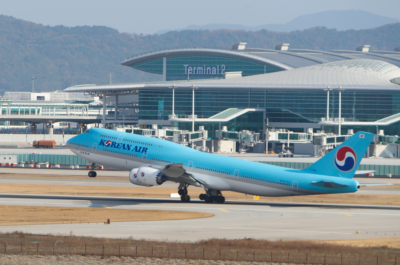The members of the International Panel of Experts that help the World Tourism Organization to publish its Barometer of trends share the opinion that the recent stock market crisis, caused by the difficulties of the most…
The members of the International Panel of Experts that help the World Tourism Organization to publish its Barometer of trends share the opinion that the recent stock market crisis, caused by the difficulties of the most risky segment of the US housing market, has not at this stage had an appreciable effect on world tourism demand.
The crisis of recent weeks has, for the most part, been financial. If it has wiped out the rapid – and perhaps exaggerated – gains made by certain markets since the beginning of the year, it has not, for the time being at least, had a substantial impact on what is sometimes called the “real economy”. Household demand is still buoyed up by objective factors: the sound financial situation of enterprises in the OECD countries and fuller employment in the industrialized countries, including those of the euro zone.
The International Monetary Fund (IMF) considers that if it were called upon to revise downwards its growth forecasts for 2007, it would be to a limited extent. The IMF had already made allowance for the relative slowdown of US growth when, in July, it revised upwards (from 4.9 to 5.2 per cent) its estimate of overall growth for 2007, owing to the good performance of other major economies, such as China, India, and Russia.
The OECD, for its part, has just revised, on 5 September, its 2007 projections for the developed economies. This revision, however, is limited. It lowers the growth projection from 2.3 per cent to 2.2 per cent for the G7 countries as a whole, from 2.7 per cent to 2.6 per cent for the euro zone, and from 2.1 per cent to 1.9 per cent for the United States. As for the major European generating countries, projections are slightly lower for Germany and France, but higher for the United Kingdom.
At this stage, therefore, it appears that the macroeconomic impact of the crisis experienced by the stock markets during the summer should be limited.
Besides, if the growth of the economy, and hence the purchasing power of the social groups that account for the bulk of international travel, were to progress more slowly or even, in the later case, to decline slightly, it is by no means obvious that tourism expenditure would be affected proportionally. On the contrary, the experience of recent years shows that travel and tourism have become an important sociological phenomenon and that households are, if necessary, prepared to make sacrifices in other areas of consumption or even to dip into their savings rather than forgo their holiday travel. Strong economic activity, for its part, serves to bolster business travel.
Turning specifically to US households, those experiencing difficulties in repaying their large mortgages were not, in any case, the most likely to travel, especially abroad, given their demographic and social profiles. By contrast, the baby boomers, who are now approaching retirement age and who, for the most part, have already bought their homes, do not seem all that concerned about the subprime mortgage problem. They are, in fact, one of the new and important forces behind travel and leisure demand in that country, as well as in western Europe and Japan.
Broadly speaking, in spite of the trend towards more moderate growth, the US economy remains strong. Average household income and consumption levels have not so far been affected by the crisis. That is why, notwithstanding the trend, until recently, towards a weaker US dollar, especially against the euro, long-haul tourism generated by the US market was up by 5 per cent in 2006 (and by 4 per cent to Europe). Provisional figures suggest that this tendency has continued this summer. Moreover, one of the consequences of the recent stock market turbulences has been to encourage the financial institutions to seek safer investment options than the housing market and, hence, to transfer part of their assets to US public debt securities, which has led to a slight recovery of the dollar. If this trend were to persist, it would reinforce the predisposition of the US tourist to travel abroad.
Just as US demand is proving resilient, the other major generating markets are shored up by the strength of their domestic economies. It should be borne in mind that whereas the USA alone accounts for about a quarter of world GDP, the expenditure of US citizens abroad (72 billion dollars in 2006) represents only 9.8 per cent of international tourism receipts (735 billions in 2006). If 63.7 million US citizens travelled abroad last year, Germany generated 71 million and China 34 million departures, to mention only two countries now experiencing considerable economic expansion.
Taken together, these elements allow us to conclude, relatively safely, that, given its present form and magnitude, the international financial crisis that began this summer is not impeding the growth of tourism to any measurable extent. It would take a veritable collapse of the “real economy”, brought about by a depreciation of assets, with repercussions for household consumption and leading to both a reduction in liquidity and a loss of confidence on the part of economic entities, for international tourism to be truly affected. But we would then have entered a phase in the history of the world economy that would replace the period of growth it has enjoyed for several years.
In June this year the UNWTO Barometer showed that the sector grew at a faster pace in the first four months of the year (6.3 per cent for arrivals) than in 2006 (4.9 per cent for arrivals and 4.5 per cent for receipts). The October edition of the Barometer is likely to confirm this positive trend. It would come as no surprise if the number of international tourist arrivals were to reach or even surpass the 880 million mark in 2007.
Theodore is the Co-Founder and Managing Editor of TravelDailyNews Media Network; his responsibilities include business development and planning for TravelDailyNews long-term opportunities.














































![[PR] PR_Ascott and Vimut Hospital_2024](https://www.traveldailynews.asia/wp-content/uploads/2024/04/PR-PR_Ascott-and-Vimut-Hospital_2024-400x265.jpg)


















